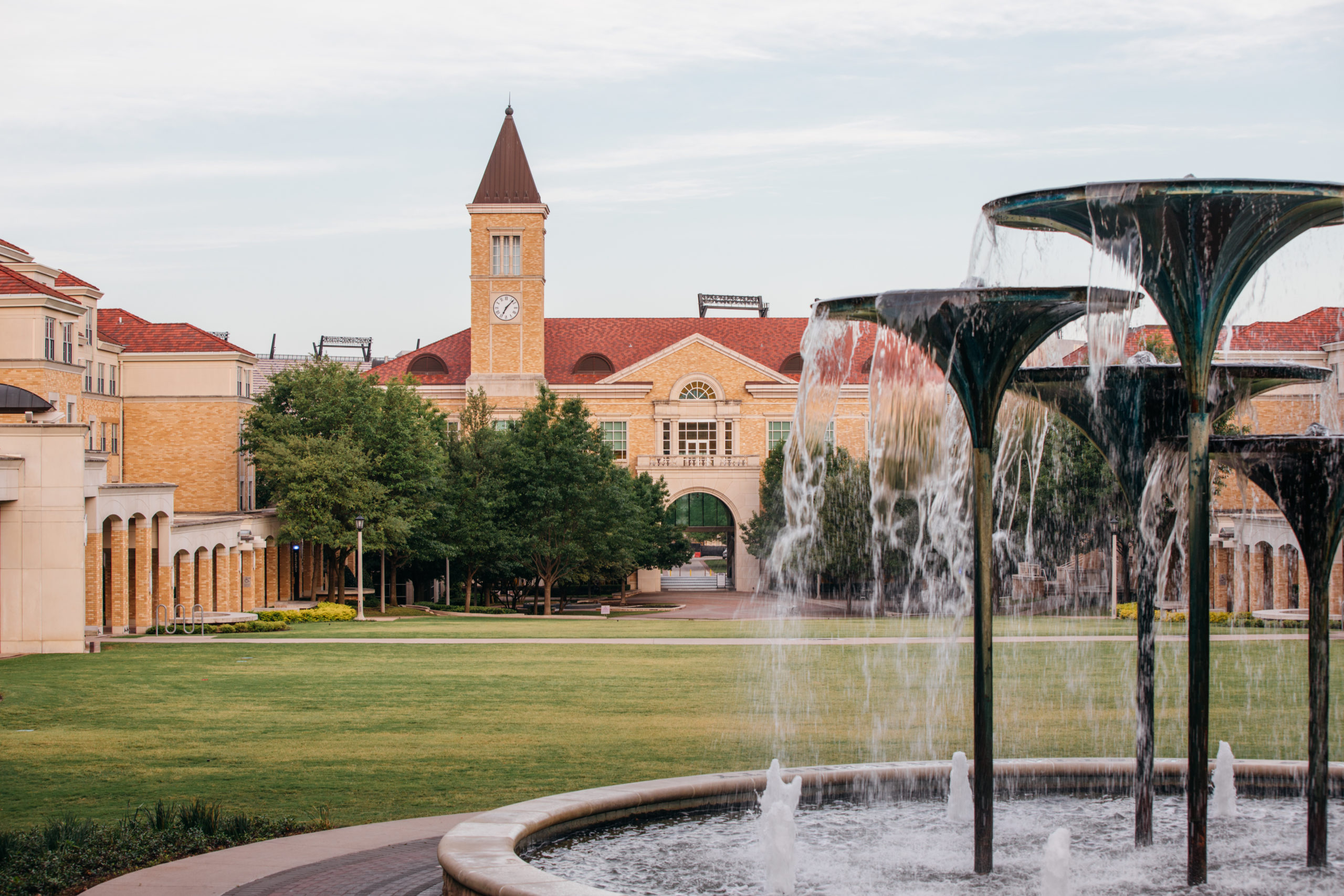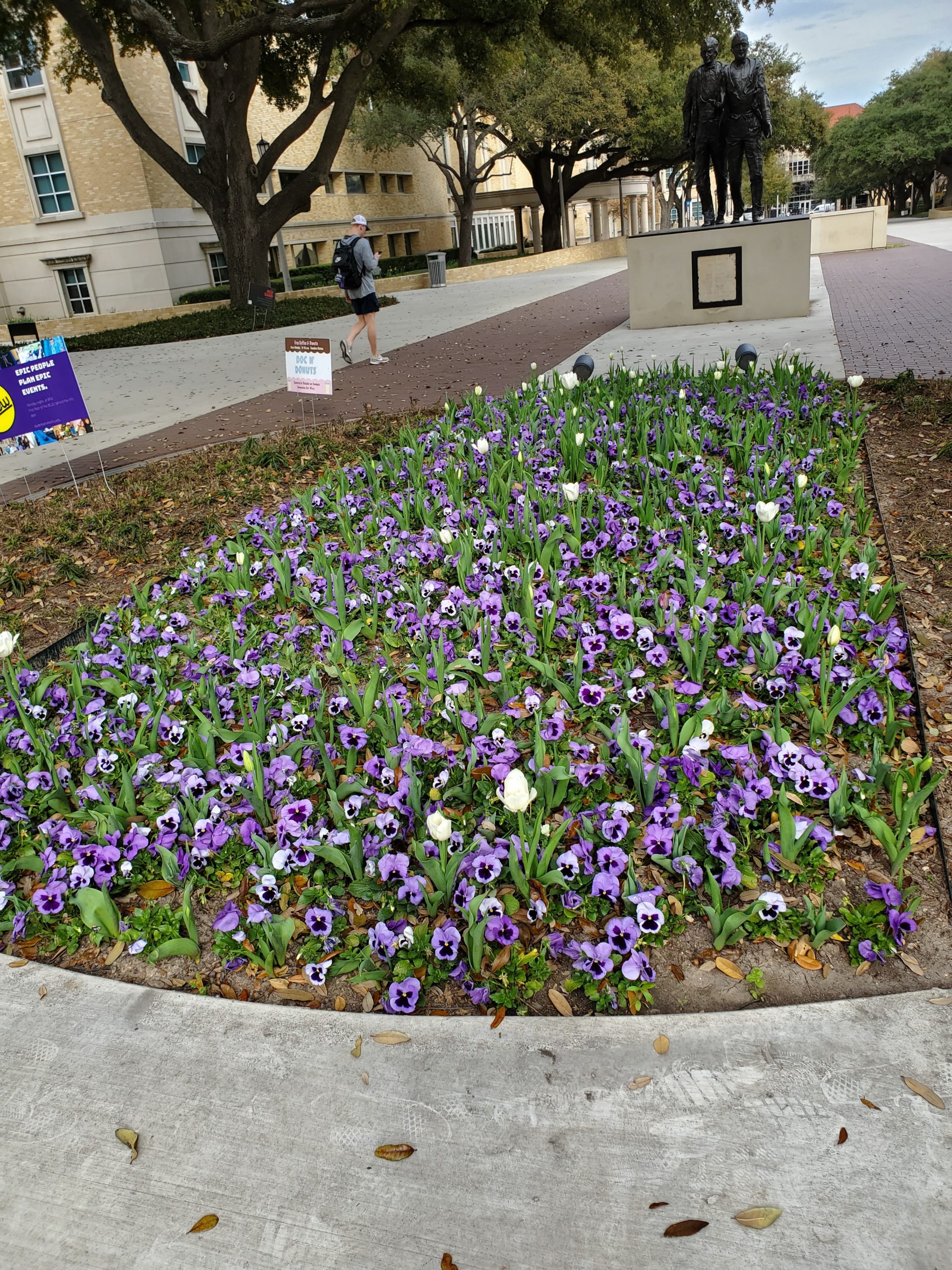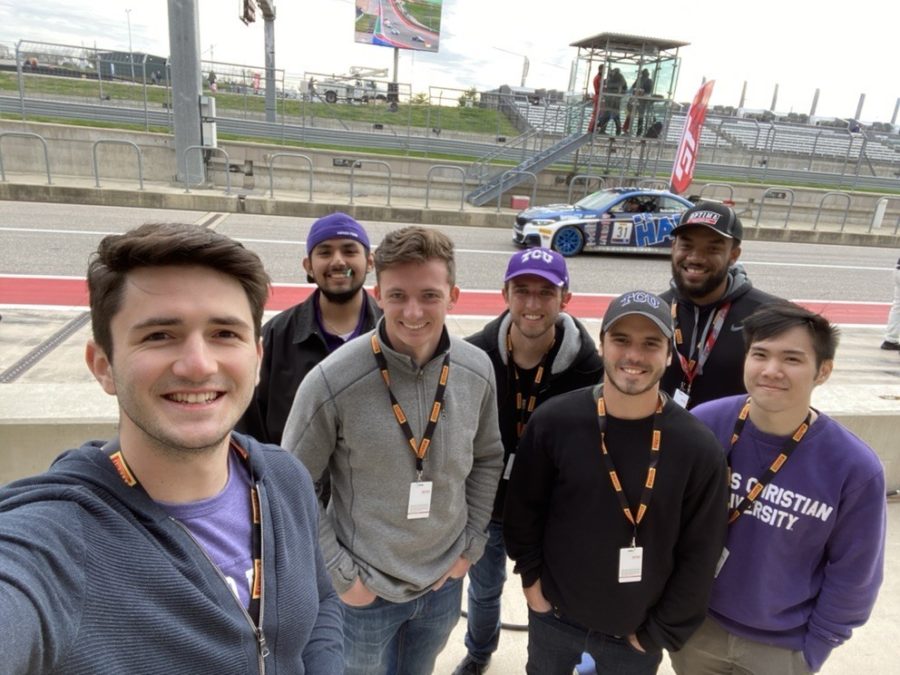This is Frog Logs, TCU 360’s new blog written for and by members of the TCU community. Here are our thoughts, our experiences and our perspectives. We invite you to participate by contributing your own piece of writing, or simply by reading what others have to say.
Dear Frogs:
The pandemic we are experiencing right now is one of those things that will live on forever in memories. Our children will learn about it in school and even their children after that.
I remember when I first heard about the coronavirus, I didn’t think much of it. I had the naive thought process of, “We have handled the spread of diseases in the past, so what’s different this time?”

Now after being in self-quarantine for what feels like forever, I have had plenty of time to reflect and enjoy a slice of “humble pie” because boy was I wrong.
The hardest adjustment for me personally has been the lack of socializing. I am a part of multiple different organizations on campus such as drumline, student media and Greek life, so not seeing the people I am accustomed to seeing on a daily basis has been unusual.

I have been keeping in touch with friends and family through video calls where we sometimes play online games together or just chat about what we’ve been up to.
Not to mention this pandemic has also put me in the substandard position of managing a temporary long-distance relationship being that my girlfriend lives in California.
A “coronavirus love story” if you will.
Other than adjusting to being alone in what feels like complete isolation for most of my day, I have been kept busy with online school work and hobbies.
School work takes up the majority of my time, but when I’m not participating in distance learning I am either practicing drumming, working on a website for a personal blog or binge watching shows on Netflix.
I never realized how important my daily routine was until I was unable to go about my day in a regular manner. Things as simple as walking to and from class were such integral aspects of my day and I never realized that until it was taken away.
I miss being out in the sunlight. I miss being able to sit down and eat in a restaurant. I miss being able to exercise in gyms. I miss seeing my friends’ faces on a daily basis. I miss interacting with my professors face-to-face. Most importantly, I miss being on TCU’s campus surrounded by fellow Horned Frogs.
Ryan Bunnell, rising junior, sports broadcasting major
Dear Frogs:
When historians look back on all that our generation has had to live through so far—the 2010 financial crisis, staunch political divisions, rising mental health issues, mass shootings, climate change and now a global pandemic—let it not be said that we’re not resilient.
One of the issues I listed above, I think, is one that will separate our generation from the rest: mental health. Of course, people have been dealing with these issues for longer than we can easily fathom, but I think we are unique in highlighting its importance.

A 2017 study by the American Psychological Association found that “more U.S. adolescents and young adults in the late 2010s (vs. the mid-2000s) experienced serious psychological distress, major depression, and suicidal thoughts, and more attempted suicide and took their own lives.”
It seems silly to be focusing on mental health in the face of a global pandemic, especially since we tend to think that physical health trumps mental health. But it’s important for us to try to take care of our mental health as much as possible right now, as difficult as that is to do even under normal circumstances.
Because being home can be hard. I love my family dearly, and I’m glad to spend time with them and my golden retriever, Molly. But, like all of you, I miss TCU. I miss walking to class and listening to music. I miss going to basketball games. I miss the study rooms in the library. I miss Mark the bus driver, who once explained football to me. Most of all, I miss my friends—both from college and from home. (It feels cruel that I’m five minutes from my best friend since childhood and I can’t hang out with her in person. Like Tantalus, I’m so close, yet so far away.)

So I’m worried about our generation’s mental health—a little more than usual. Even on a “good day,” this generation struggles with mental health; I shudder to think about the mental effects that COVID-19 and social distancing has had and will continue to have on us as we stay in our homes.
Because TCU has lost students to mental illness. I have had classmates from both college and high school take their own lives, and I bet many of you can say the same. The vast majority of us have been affected by mental health, whether personally or through a family member or friend.
So as we go through these trying times, be patient and kind to yourself. It’s okay to have days where all we want to do is eat pasta, scroll through Twitter and watch “The Office” again. And not feel guilty about it. Self-care days aren’t unproductive days.
I also would like to emphasize that it doesn’t make you weak or stupid to ask for help; in fact, I think it’s a sign of strength, because it takes effort to better ourselves. There are tons of online counseling resources, and family and friends can be wonderful sources of comfort and support.
I won’t bore you with the same generic laundry list of ways to cope with mental illness. At this point, you probably have an idea of what works for you. What I will ask—no, implore—is that you take care of yourselves. Because now, more than this generation has seen, we’re realizing the value of our health—and that includes our minds.
Alexandra Lang, rising junior, journalism and political science double major
Dear Frogs:
It doesn’t seem right that we’ve arrived at the last week of the semester.
Many of my professors began assigning more work when TCU transitioned to distance learning–maybe you can relate. At the same time, though, it’s hard to see that the semester has progressed at all since spring break.
I think this has to do with the lack of markers of time in my life. If I were on campus, my routine would be much different. I would be walking to class, going for runs, shopping for groceries, cleaning my apartment. I would start to notice the signs of a lack of sleep on my face as well as the faces of my friends, classmates and professors. I would experience more frequently the weather gradually getting warmer, reminding me summer is approaching.

I didn’t get these and so many other experiences that I would have if I weren’t adhering to the stay-at-home policy. And I have to think of the graduating seniors who missed out on countless traditions.
For example, my sister–a senior in high school–had a virtual prom last weekend; she joined a Zoom call with some students and several of her teachers. It was nothing like the prom many of us have experienced, nothing like the prom she wished she had.
I graduate in December, so I have not had to cope with COVID-19 interrupting my last semester in college.
But I have a need for closure. Too many times there has been a poor internet connection while I was on a Zoom call, and I was unable to hear the last part of another person’s comment. Or a professor’s recorded lecture stopped working, and I couldn’t hear him explain the last couple of slides. These situations to me are like hearing nails scratching a chalkboard.
Anyone who has authored a piece of writing can tell you that the conclusion is one of the most challenging parts to master. In a journalistic story, a good ending is clear, ties up the narrative and brings it to a reasonable close. Without it, the story seems unfinished, and the reader is left with a sense of unease or confusion.
The end of this semester is like a story without a conclusion. It is testing my need for closure. But as my dad says–without irony–it builds character.
So goodbye, spring 2020, and hello, summer.
Renee Umsted, incoming executive editor of TCU 360
Dear Frogs:
Many of us are missing our old ‘normal’ – myself included. I was comfortable in my classes and on campus, and excited for new internship and research opportunities. But health officials say the COVID-19 pandemic may continue intermittently for the next two years.

After we emerge from our current spiral of frustration, loss and anxiety, can we return to a campus and an existence frozen in time? Our threshold for “normal” might have to be lowered a bit. Sports and other major venues will have a sense of the uneasy, and job experience will take on a new meaning. Eight A.M.s will be cherished as well as loathed. We will no longer laugh when our professor can’t figure out how to navigate the computer, realizing that in the Era of Zoom, that would have been a class wasted.
Right now, there’s a sense of disconnect – like classes aren’t “real” in the face of digital submissions and recorded lectures. I think of the Avengers, and how five years after everything went south in Infinity War, many of them still could not adjust; a sense of reality isn’t something that is easily restored. The most important survival strategy, though, is to not give into a lack of motivation. Despair and grief are often temporary, but like COVID-19, apathy has a habit of hanging around.
That’s not to say it won’t be difficult. Many of us will have missed milestones – first apartments and first jobs, 18th and 21st birthday celebrations, and even graduation. I have no idea if the study abroad programs I’d like to attend next summer will take place, or if dorm life will radically change to prevent the next epidemic.
The pandemic isn’t going to let us just move on with a, “That’s all, folks.” But as long as we continue to care about each other and our communities as ethical leaders and responsible citizens, things will turn out all right.
Camilla Price, rising junior, biology major
We want to hear from you! If you are a current or former student, faculty or staff, leave a 300-500-word story in the submission form on the right of this page; we’ll be in touch.

